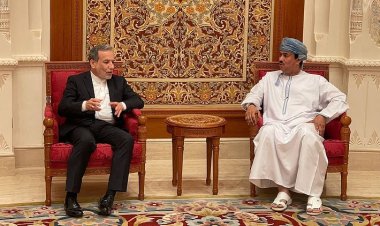Trump declares 'No room left' for agreement as tariffs on Canada, Mexico are set to begin Tuesday
Trump reiterated his plan to increase the current tariff on all Chinese goods to 20 percent.

At a press conference at the White House, Trump stated, "There is no room left for Mexico or for Canada" to negotiate on the tariffs, adding, "They're all set. They go into effect tomorrow."
In 2024, the two nations sent over $900 billion worth of goods to the United States, which included significant volumes of automotive products, agricultural items, and various consumer and industrial goods. This figure represented about 28 percent of total U.S. goods imports last year.
American automakers have expressed concerns that the high tariffs could disrupt the supply chains they have established in Mexico and Canada over the last three decades. They have urged Trump to exempt auto and auto part imports that meet the rigorous regional content standards included in the U.S.-Mexico-Canada Agreement negotiated during his first term.
Nevertheless, Trump did not suggest any possibility of such exemptions on Monday. He indicated that manufacturers should focus on producing their vehicles domestically, stating, "What manufacturers will have to do is build their car plants, frankly, and other things in the United States, in which case they [will] have no tariffs."
In addition to the tariffs on Canadian and Mexican goods, Trump reiterated his plan to increase tariffs on Chinese imports. Following his remarks, the White House issued an executive order to amend February's tariffs on Chinese goods, raising them to 20 percent.
This tariff decision follows months of pressure from Trump on Mexico, Canada, and China to improve their efforts to prevent illegal immigration and the trafficking of fentanyl into the United States. The tariffs on Canada and Mexico were initially scheduled to be implemented in early February but were delayed for 30 days following conversations Trump had with leaders from both countries. That grace period is set to expire after midnight Tuesday.
The administration moved forward with a 10 percent tariff on Chinese goods on February 4, adding to the extensive tariffs already imposed on over $300 billion worth of Chinese products during Trump's previous term. When asked about potential future increases on tariffs targeting China, Trump did not provide a specific figure, indicating it would depend on how China responds to his concerns regarding fentanyl shipments associated with numerous American fatalities each year.
In reaction to the 10 percent tariff increase, the Chinese government has already taken retaliatory measures, as reported by the Global Times, which noted that further tariffs on "US agricultural and food products" are being considered. Canada and Mexico have also warned of retaliatory actions should Trump's tariffs take effect.
"If they want to try to annihilate Ontario, I will do everything, including cut off their energy, with a smile on my face ... and I’m encouraging every other province to do the same," stated Ontario Premier Doug Ford during a press conference in Toronto.
Commerce Secretary Howard Lutnick, speaking on CNN, acknowledged that Canada and Mexico have made progress in addressing undocumented immigration. However, he emphasized the need for both nations to enhance their efforts to curtail the flow of fentanyl across the border. "The main thing that Mexico and Canada need to do is get the [drug] cartels to stop sending in fentanyl," Lutnick remarked.
"He knows they've done a good job on the border. They haven't done enough on fentanyl," Lutnick commented shortly before Trump's press briefing.
Later in the day, Trump indicated that additional tariffs would be introduced in early April, as senior administration officials are expected to present recommendations regarding his "reciprocal tariff" plan. This initiative aims to adjust U.S. tariff rates to match those imposed by other nations, considering both traditional tariffs and non-tariff barriers that foreign countries impose on American goods.
"Reciprocal tariffs start on April 2," Trump noted, jokingly adding that he didn't want to implement them on April 1 due to the association with April Fool's Day.
In an effort to reassure American farmers, who may be among the early victims of retaliatory tariffs from Canada, Mexico, and China, Trump claimed that his upcoming tariffs would ultimately benefit their financial prospects. On Truth Social Monday, he addressed "the Great Farmers of the United States," encouraging them to "start making a lot of agricultural product to be sold INSIDE of the United States. Tariffs will go on external product on April 2nd. Have fun!”
However, it is important to note that the U.S. ability to produce agricultural products often exceeds domestic consumption needs, leading to reliance on export markets for surplus goods. In other areas, imports play a crucial role in maintaining a steady supply of fruits and vegetables throughout the year.
During his White House address, Trump reiterated his belief in the effectiveness of tariffs as a means to compel other countries to engage fairly in trade, despite widespread economist consensus that increased tariffs could lead to higher consumer prices and hinder U.S. economic growth. Financial markets reacted negatively to Trump's confirmation of the North American tariffs, with stocks declining shortly afterward.
The president maintained, "They can't come in and steal our money and steal our jobs and take our factories and take our businesses and expect not to be punished — and they're being punished by tariffs."
He asserted that tariffs are "a very powerful weapon that politicians haven't used because they were either dishonest, stupid or paid off in some other form," emphasizing his belief in their efficacy.
Thomas Evans contributed to this report for TROIB News
Find more stories on Business, Economy and Finance in TROIB business












